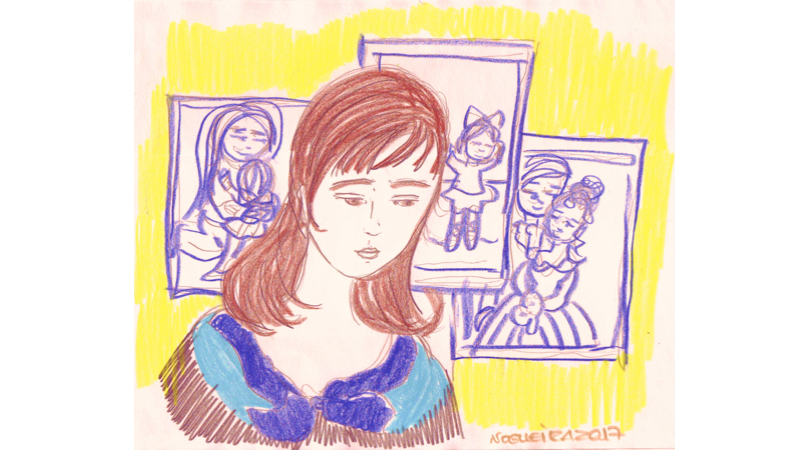Invisible Journeys
Moving countries is in my blood. As soon as I turned 18, my wanderlust materialised as planning long travels abroad – to learn a new language, to discover my roots, to relish the freedom and adventure of solo travelling around the world. By the time I’d graduated from university, I could add “walking into Tibet” to the personal achievements section of my CV. I still cannot tell, looking back, if this came from my family background or was something I was born with. Probably a bit of both!
My parents married for love and were disowned by both their Indian families in 1960, arriving in Liverpool on a cargo ship one cold November and expecting to find a land of hope and glory. They were confronted with all the challenges that were a hallmark of life in England before anti-discriminatory legislation was introduced in 1966. “No coloureds allowed” was the norm on the housing ads in those days. My mother did not believe we were the intended audience of any xenophobia, and her positive spirit and interest in individual human psychology helped us to cope thoughtfully with always being in the minority. My father’s more realistic views made him more of a cynic, and this contrast in their attitudes made for much stimulating dinner-time discussions about the world and the range of people in it. Their travels had shaped them and talking openly about why they each thought as they did helped us children to voice and form our own worldviews independently of theirs.
Nevertheless, in my late 20s, I found it was time to tackle some of the baggage my unusual heritage had left me with. During my four-year post-grad course, a pre-clinical training in child psychotherapy, I was obliged to face my most pressing emotional issues, and eventually took pleasure in doing so. You must undergo therapy in order to learn to handle the emotions in the therapy room skilfully and perceptively. As well as following and analysing our own personal development, we students were required to observe the factors that contributed to the early personalities of newborn babies and young children. Simply by paying close attention to the dynamics of each play experience through weekly home visits, sometimes over a period of years, we had the opportunity to travel imaginatively – into the mental and emotional worlds of each individual child. These were the journeys of discovery I would never forget. In my work life, understanding how events all contribute to children’s thoughts or feelings and their futures is a crucial part of planning to realise each individual child’s potential.
Outside work, people I get on well with tend to be psychologically-minded too, or they appreciate the rewards of noticing details and thinking about them. After my future husband proposed to me, I suddenly felt quite overwhelmed as we stood together in an English country garden one day. My huge mixture of emotions had to do with moving into a mutually dependent relationship, remembering my own hurdles toward trust, and letting go of some of the strength I had needed to live on my own. I remember thinking that part of travelling into a new future involved being able to bear being reminded of the past. Both extreme joy and hardships have to be processed. These emotional journeys may be only partly conscious, but they need to happen if you want to move on.
All my personal life transitions – marriage, becoming a parent, and moving to Switzerland – have been imbued with complex feelings, giving me much food for thought. Since becoming a mother, I have hardly travelled anywhere challenging with my son, preferring to see family and old friends back home or abroad as much as possible in the holidays. The importance of journeys to new places has changed in this phase of life as a parent. Perhaps when my son starts to travel on his own as an adult, this will change again.
When I think of the journeys that meant the most to me in my first ten years as a mother, the emotional and psychological ones stand out as the most meaningful in my entire adult life. I can recommend that all travellers who move around the world with their children embark on this kind of journey wherever they live and even if they put down roots in a new spot. Sometimes parents need to find a new space to think. With international counselling expanding now in Zurich, there has never been a better time to get support along this part of our life journey. It is often the case that such an investment as therapy in a foreign language will not be covered by Swiss health insurance companies. But mental journeys are sometimes the ones that will bring the greatest rewards.
By Monica Shah
Monica founded Children First in 2006 to support international families living abroad with practical services such as daycare, early education and language learning. Children First is now joining forces with Stillpoint Spaces to offer therapeutic services in Zurich at the Play Space, where they have launched a reflective parenting group and sand play therapy for children and adolescents.
Illustration by Albina Nogueira
Albina Nogueira has been a primary school teacher since 1992, and a writer and illustrator since 2006. She currently lives in Switzerland, but her homeland is Portugal. She is also the author of Letters to Grandparents and Hairdresser. To find out more, like her on Facebook or see her books in Amazon.




